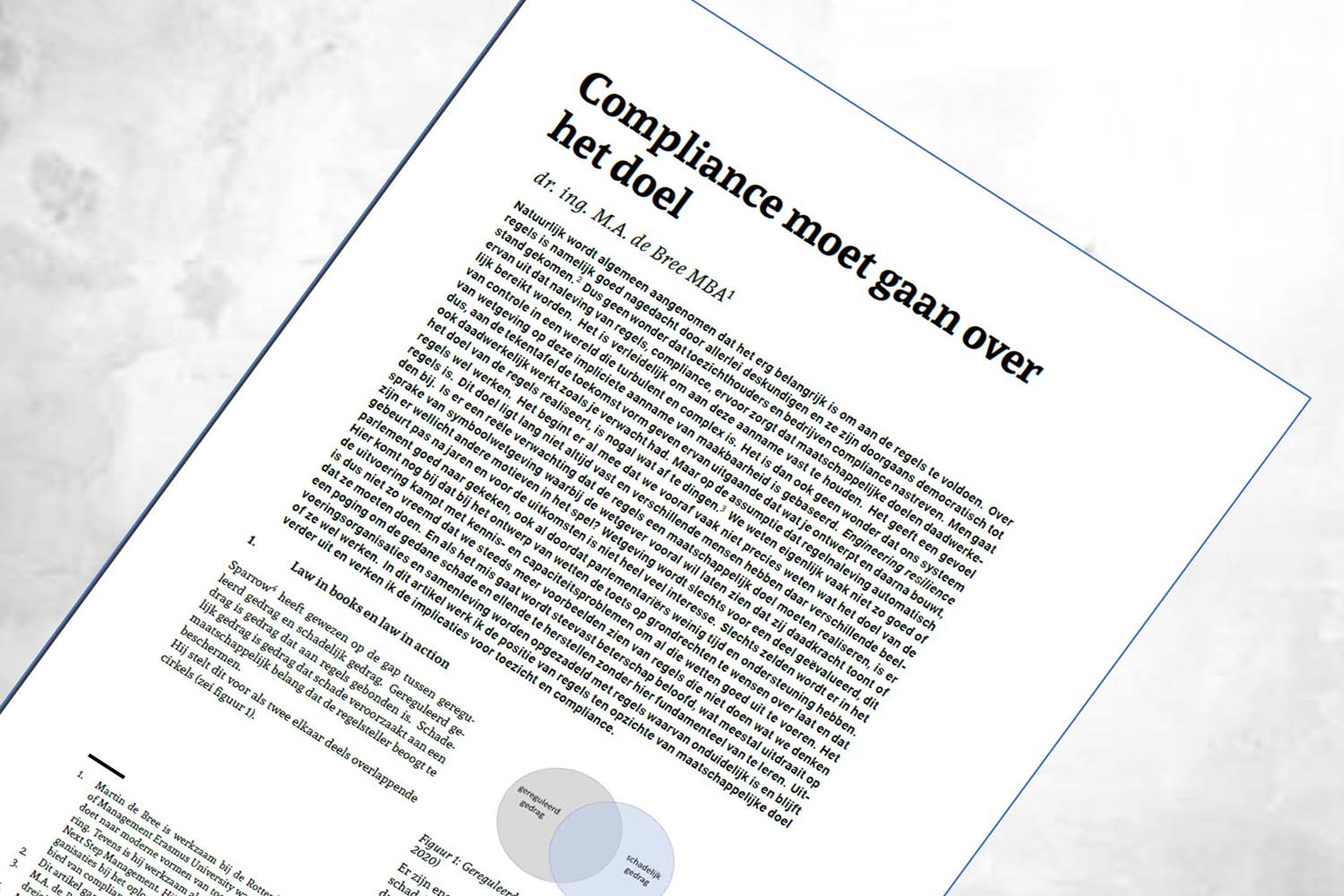Compliance should be about purpose
[source: Journal of Compliance No. 2, April 2022 ]
permission publication on SDN website by author dr. ing. M.A. de Bree MBA
Summary
Of course, it is generally accepted that it is very important to comply with rules. After all, rules are well thought of by all kinds of experts, and they are usually created democratically. So no wonder regulators and companies pursue compliance. It is assumed that compliance with rules, compliance, ensures that societal goals are actually achieved. It is tempting to cling to this assumption. It provides a sense of control in a world that is turbulent and complex. No wonder our system of legislation is based on this implicit assumption of social engineering. So engineering resilience, at the drawing board shaping the future assuming that what you design and then build,
will actually work as expected. But on the assumption that rule compliance automatically
realize the purpose of the rules, there is a lot to be said against the assumption.
In fact, we often don't know very well whether rules work. It starts with the fact that we often do not know in advance exactly what the purpose of the rules is. This goal is by no means always fixed and different people have different images of it. Is there a real expectation that the rules must realize a social goal, is it symbolic legislation in which the legislator mainly wants to show that she is decisive, or are there perhaps other motives at play? Legislation is only partly evaluated, this happens only after years and there is not much interest in the results. Only rarely is it looked at properly in parliament, also because parliamentarians have little time and support.
Added to this is the fact that in the design of laws, the fundamental rights test leaves much to be desired and the implementation is struggling with knowledge and capacity problems to properly implement all those laws. So it is not surprising that we see more and more examples of rules that do not do what we think they should. And when things go wrong, improvement is invariably promised, which usually turns into an attempt to repair the damage and misery done without fundamentally learning from it. Implementing organizations and society are saddled with rules of which it remains unclear whether they actually work. In this article I elaborate on the position of rules in relation to societal purpose and explore the implications for supervision and compliance.


